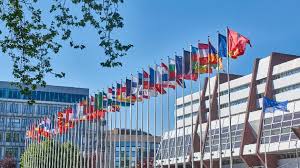Following the cash-for-influence crisis that rocked the 27-nation bloc last year, the executive arm of the European Union on Thursday suggested the establishment of an ethical committee that would establish consistent standards of behavior for institutions.
Ursula von der Leyen, president of the European Commission, backed its establishment when she assumed office back in 2019. Her services also intensified their efforts after the so-called Qatargate crisis rocked the EU Parliament.
The Commission’s proposal would establish uniform criteria for all EU parliamentarians when it comes to gifts, hospitality, and travel provided by outside parties. The EU now lacks comprehensive lobbying legislation.
The Commission stated that “Standards will apply to the acceptance of awards, decorations, prizes or honors.”
Additionally, the organization would establish guidelines for meeting with representatives of interests, activities of EU officials after they leave office, and how they disclose their assets and interests.
Six months after a group of European Union lawmakers was implicated in the cash-for-influence scandal, anti-corruption officials and lawmakers expressed regret that no new anti-corruption rules have been implemented at the European Parliament and that those that are in place are not being enforced.
When the issue first surfaced, von der Leyen claimed it posed a threat to the faith that EU members had placed in the institutions of the 27-nation bloc.
The independent ethics body would cover lobbying activities at the European Central Bank, the European Court of Justice, the European Court of Auditors, the Economic and Social Committee, and the Committee of the Regions in addition to the European Commission, the European Council, and the European Parliament.
The institutions of our Union must be transparent and above reproach in terms of ethics, openness, and integrity, according to von der Leyen, if Europeans are to have faith in it.
The new group, which won’t have investigative authority, would have a rotating chair chosen from among all participating institutions, according to the Commission’s proposal. There will also be five outside specialists participating.
Numerous EU politicians have criticized the proposal’s lack of investigative powers.
Stéphane Séjourné, the leader of Renew Europe, stated that “Europe deserves better than half-baked proposals.” “Rather than a toothless bulldog, we need an independent ethics commission with investigative powers. Conservative politicians in Europe need to quit sticking their heads in the sand and take the Qatargate scandal’s lessons to heart.
At a meeting in July in Brussels, the Commission will now invite representatives from all EU institutions and advisory bodies to begin discussions on the idea.

















